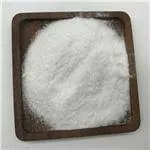

Lipase, mainly secreted by the pancreas, is critical for the digestion of dietary fats. It breaks down fats into fatty acids and glycerol, which can be readily absorbed by the intestine. Proper lipase function ensures the efficient absorption of fat-soluble vitamins such as A, D, E, and K, which are paramount for maintaining vision, bone health, antioxidative functions, and blood coagulation. Disorders related to lipid digestion can often be traced back to lipase deficiencies, which might result in steatorrhea (fatty stools), weight loss, and vitamin deficiencies, highlighting why lipase is essential for maintaining optimal health on a high-fat diet. For those seeking to enhance their digestive health through dietary supplements, understanding these enzymes' roles can empower better choices and promote maximal nutritional benefits. Products designed to enhance enzyme activity should offer balanced formulations that address deficiencies, support comprehensive digestion, and enhance nutrient absorption. Supplementing with enzymes tailored to one's diet can assist in alleviating digestive discomfort and improving nutrient uptake, making them worthwhile considerations for anyone striving to optimize their digestive health. Selecting high-quality enzyme supplements from reputable brands endorsed by healthcare professionals can fortify trust and guarantee efficacy, as well as safety in use. Incorporating these digestive enzymes into your health regime doesn’t just cater to resolving digestive discomforts; it is an investment in overall wellness, ensuring that the nutrients consumed contribute positively and effectively to one's health goals.

